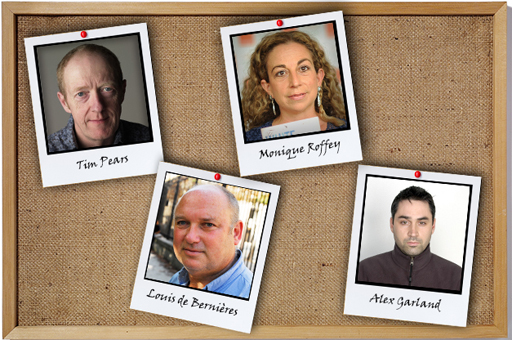6.1 Ways of developing characters

Transcript
You’ve already discovered that learning about the approaches other writers take can be helpful.
Here novelists discuss how they develop their fictional characters using a mixture of methodical research, accident and empathy.
As you’re listening to Tim Pears, Monique Roffey, Alex Garland and Louis de Bernières, make a note how you might develop main characters and how much work goes into differentiating between relatively minor characters.
